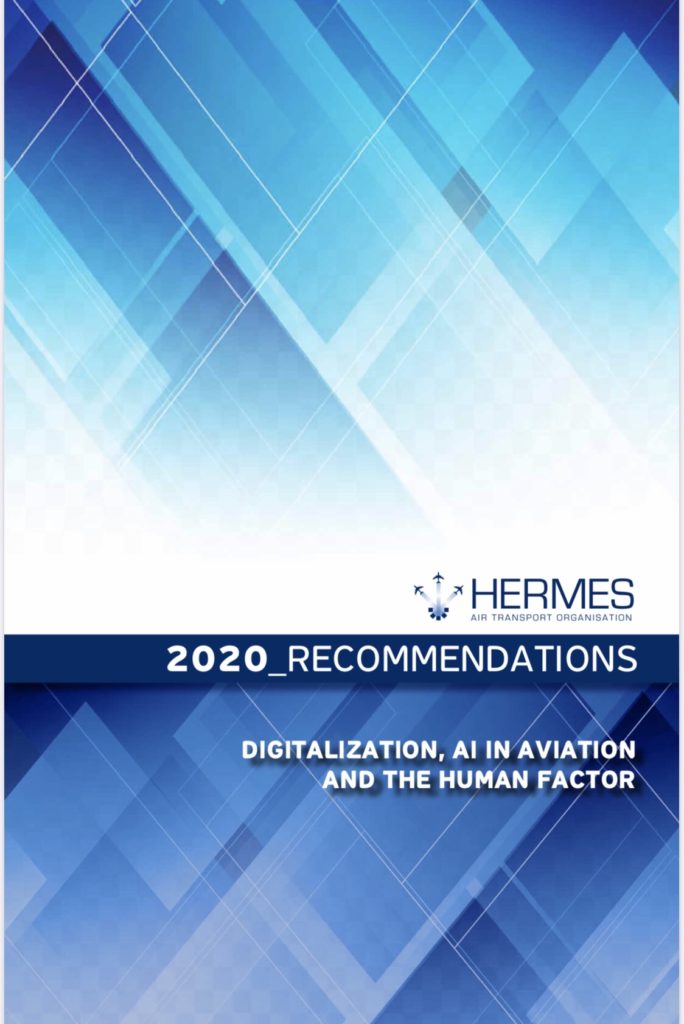According to a White Paper prepared for the World Economic Forum, “There is widespread recognition among industry leaders that the role of digital technology is rapidly shifting, from being a driver of marginal efficiency to an enabler of fundamental innovation and disruption.” The White Paper further notes that the aviation industry has been at the forefront of digital innovation, but that, “further digitalization will be vital if the expectations of tomorrow’s consumers are to be met.” Along the same lines, a working paper prepared by the Singapore delegation to ICAO’s Thirteenth Air Navigation Conference notes, “The growing pace of digital technological advancement provides opportunity to advance the global aviation industry, but is also a challenge that can disrupt the aviation industry.”
Digitalization promises to increase efficiency and safety in the aviation industry, as well as to improve the customer experience. Integration across physical and digital assets, “will result in a seamless customer journey by making information available continuously, reducing waiting and transfer times, hyper-personalizing services and optimizing rerouting.” Increasing the digitalization of assets will further facilitate predictive maintenance, as information is communicated on a real-time basis to control centers outlining required safety checks and repairs.
Building on these digital advancements, artificial intelligence (AI) offers the opportunity to learn from experience: “The differentiating factor of an AI system from a standard software system is the characteristic ability to learn, improve, and predict.” According to a recent report by McKinsey & Company, “Machines powered by AI can today perform many tasks—such as recognizing complex patterns, synthesizing information, drawing conclusions, and forecasting—that not long ago were assumed to require human cognition… After decades of false starts, artificial intelligence is on the verge of a breakthrough… Tech giants and digital natives are investing in and deploying the technology at scale, but widespread adoption among less digitally mature sectors and companies is lagging.”
The pace of change in aviation from digitalization and AI is fast and accelerating, with almost every aspect being impacted – not just greater autonomy in the air in aircraft and other airspace vehicles and in air traffic management but also on the ground for operations, security and the passenger experience. Clearly, increased use of digitalization and AI in the aviation industry will disrupt the current workforce. Although, some jobs will be lost with workers replaced by technology, many more workers will need to be retrained to accommodate the new technologies: “Digital transformation demands a different skill set from workers in today’s economy, and will create new types of jobs… Challenges such as managing the impact of automation on employment, reskilling the industry workforce for the digital economy, and creating a safety net for workers in a flexible workforce, will need to be tackled collaboratively by industry, regulators and policy-makers.”
In this context, Hermes invites interested stakeholders to submit papers on the following topics:
1. What changes are needed to ensure that aviation proactively embraces digitalization and AI in a way that ensures continued safety, security and sustainability? Are current arrangements with ICAO (regulations, standards, etc) and industry associations (industry standards, benchmarking, sharing of best practices, etc) adequate or is there a need for more explicit leadership in aviation and, if so, by whom?
2. What policies and regulations need to be instituted, altered or removed to ensure successful implementation of digitalization and AI in aviation? Is a performance-based approach to human involvement and to regulation sufficient or is there a need to be more prescriptive on when human involvement and management is essential?
3. Digitalization and AI will reduce the cognitive load on humans but will also have a significant impact on the need for human time and resources. How can aviation best anticipate and manage that impact? What changes are needed to recruitment, management, retention and retraining practices to ensure adequate and appropriate human resources that thrive in the aviation workplace?
1 World Economic Forum, Digital Transformation Initiative Aviation, Travel and Tourism Industry, White Paper, January 2017.
2 Ibid.
3 ICAO, Thirteenth Air Navigation Conference, Working Paper, AN-Conf/13-WP/232.
4 World Economic Forum, op. cit.
5 ICAO, Thirteenth Air Navigation Conference, op. cit.
6 McKinsey & Company, Artificial Intelligence: The Next Digital Frontier? Discussion Paper, June 2017.
7 World Economic Forum, op cit.

